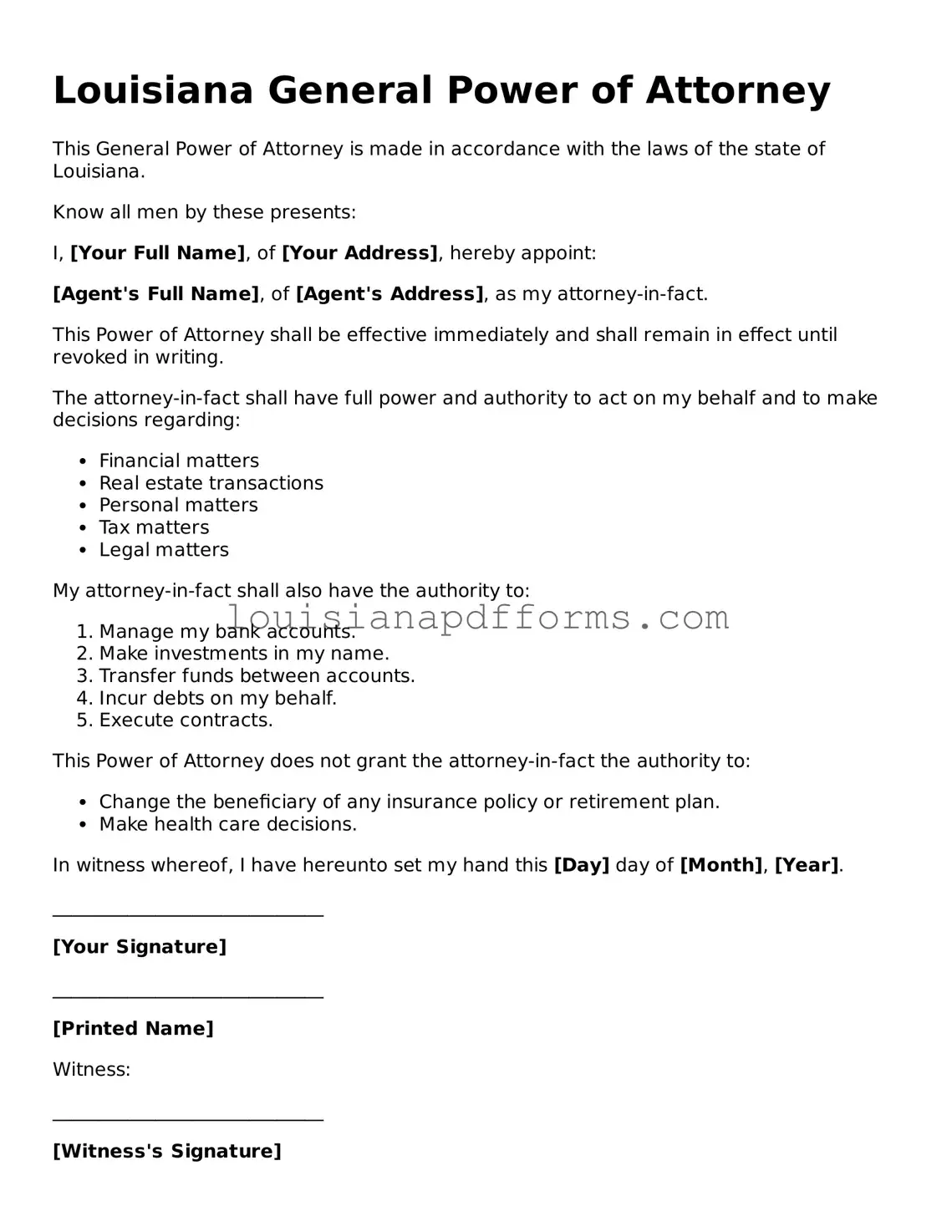Louisiana General Power of Attorney Form
A Louisiana General Power of Attorney form is a legal document that grants one person the authority to act on behalf of another in various financial and legal matters. This form is essential for individuals who wish to ensure their affairs are managed according to their wishes, especially in situations where they may be unable to make decisions themselves. By designating a trusted agent, individuals can maintain control over their financial and legal interests, even when they are not physically present to manage them.
Access My Document Now

Louisiana General Power of Attorney Form
Access My Document Now

Access My Document Now
or
Free General Power of Attorney
You’re halfway through — finish the form
Edit, save, and download your completed General Power of Attorney online.